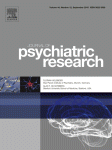 The Journal of Psychiatric Research is retracting a 2010 paper claiming to show a relationship between quetiapine (Seroquel) and certain lab tests and brain scans, after it turns out the brain images were either unreliable or invalid.
The Journal of Psychiatric Research is retracting a 2010 paper claiming to show a relationship between quetiapine (Seroquel) and certain lab tests and brain scans, after it turns out the brain images were either unreliable or invalid.
Here’s the notice for “Relationship between dopamine D2 receptor occupancy, clinical response, and drug and monoamine metabolites levels in plasma and cerebrospinal fluid. A pilot study in patients suffering from first-episode schizophrenia treated with quetiapine”:
This article has been retracted: please see Elsevier Policy on Article Withdrawal (http://www.elsevier.com/locate/withdrawalpolicy).
This article has been retracted at the request of the Editors
Key results are based on invalid data, according to a recent notification by the authors. The findings of the article are significantly related to dopamine D2 receptor occupancy data, obtained from a Positron Emission Tomography (PET) scan in five individuals. According to new evidence, PET data of two out of these individuals did not show a reliable signal at all, while the PET results of the remaining three subjects are partly invalid. As a result, the reported findings are most likely incorrect. Journal of Psychiatric Research is dedicated to the highest scientific standards, therefore, this article has been retracted. The Editors regret if any misleading conclusions have been drawn from this publication, and apologies are offered to the readers of the journal.
The study was partially funded by Seroquel maker AstraZeneca, which paid more than half a billion dollars to the U.S. government last year to settle charges it paid “kickbacks to doctors as part of an illegal scheme to market [Seroquel] for unapproved uses.” It has been cited six times, according to Thomson Scientific’s Web of Knowledge.
It’s not clear how the problems with the data came to the attention of the authors. We tried contacting the editors of the journal, and the corresponding author, and will update with anything we hear back.
Update, 8/3/12: We heard back from corresponding author Georg Nikisch:
In the process of planning to expand our pilot study that comprised only 5 patients, we reexamined our data and “discovered that unfortunately the data in Table 1 were inadvertently erroneously presented due to a mistake in labeling patient #3 and #4” (from the letter to the Editor, JPR). Following consultation with the Editor the decision was reached, in view of the small N, to withdraw the paper.
We do not plan to retract any other papers.
Hat tip: Clare Francis
“all subjects’ PET scans turn out to be unreliable or invalid”
It does show consistency if nothing else.
I know there is such thing as funding bias (Funded papers are more likely to get the results the funder wants than otherwise) but has anyone looked at how retractions correlate with funding? Are funded studies which finds what the funder wants more or less likely to be retracted than average?
Yes, it would be interesting to see if there is a correlation.
There are of course situations where a researcher makes up data and comes up with some extraordinary results to satisfy the politically driven objectives of a funding agency. The funding agency in return makes sure that the extraordinary results are publicized in as many journals as possible. In a situation like this, it is highly likely that papers will be retracted because the research has been widely publicized and because the results are too good to be true.
We have a case like this in Canada. Queen’s University Experiments in Liquid Diffusion (QUELD) were funded for many years by the Canadian Space Agency (CSA). The goal was to show that Canada can make extraordinary contributions to space research. The researchers came up with some extraordinary results to satisfy the politically driven objectives, claiming that diffusion coefficients for molten metals and semiconductors vary linearly with temperature if g-jitter is suppressed in space flights. For years, the results were promoted by CSA in multiple duplicated articles and huge number of conference presentations. Finally, people started asking questions, and now the papers are being retracted. More on this: http://littleofficeofintegrity.org/
Reblogged this on kampf um freiheit/ antipsychiatrie.